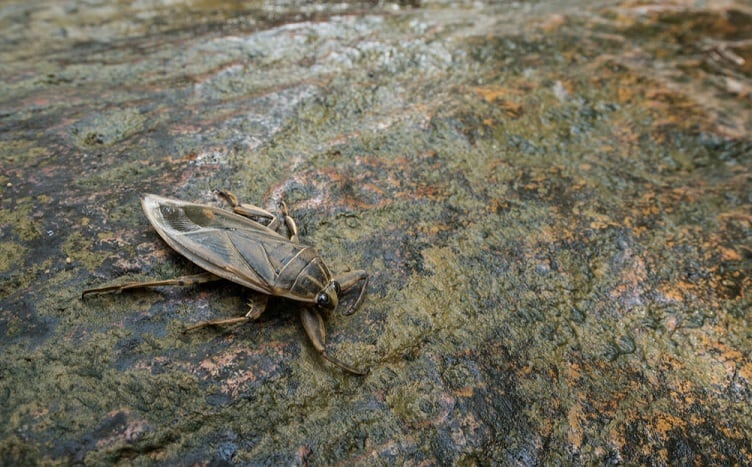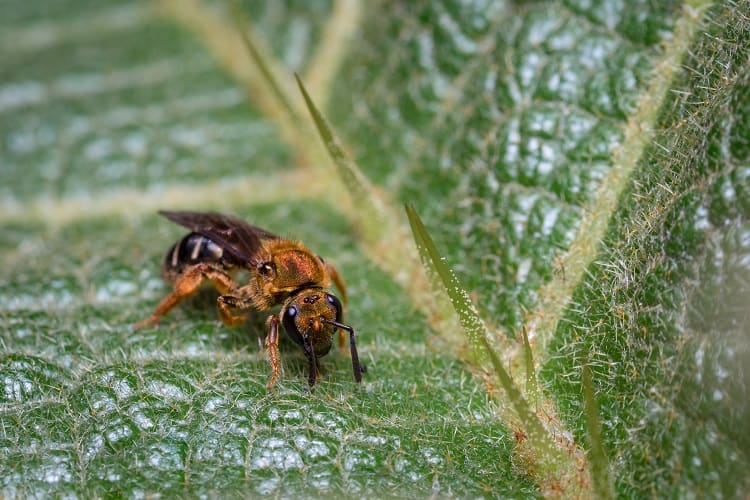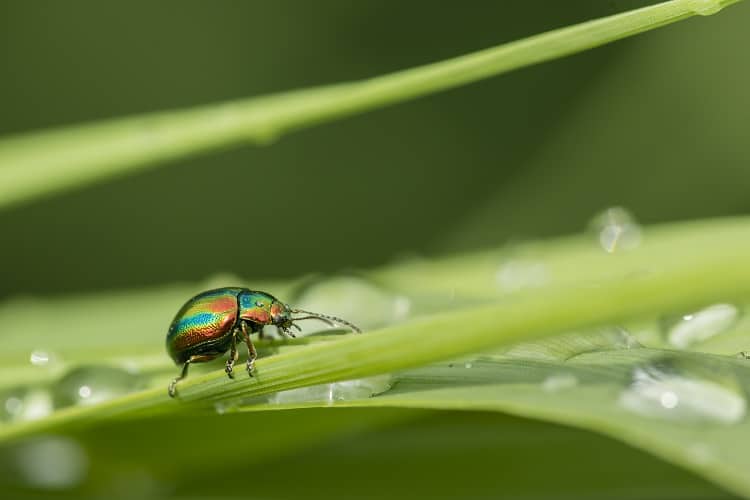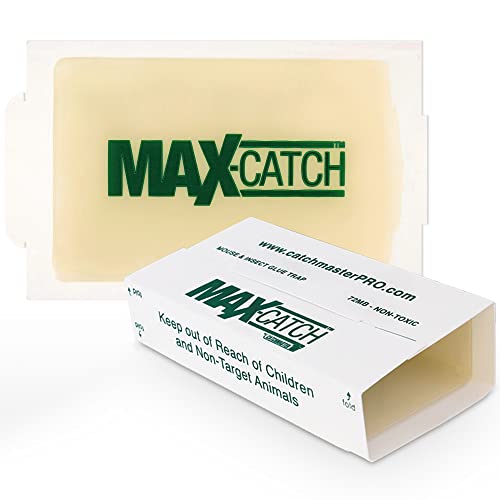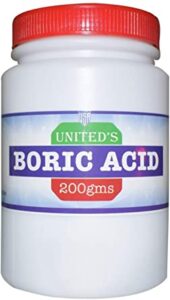Water bugs are scary, and some of them can deliver incredibly painful bites when touched or handled. They are also not fun to look at, but the biggest threat is to our health and well-being.
They are capable of fueling huge infestations because they can spread human diseases, bacteria like salmonella, and other parasites. They also contaminate the food they touch, leading to food poisoning, diarrhea, and other gastrointestinal complications. They will even trigger allergies and asthma attacks.
The slightly good news is they are usually content staying in their natural habitat close to water bodies and will rarely intrude on your home. Unfortunately, your yard is often very close to their natural habitat, and it is honestly unfair to expect them to know where the state line is.
They will often be attracted by the goodies in your home and move in. This article is also about how to prevent this from happening as much, as we will share practical tips to get rid of water bugs in case the invasion has already taken place.
What Brings Giant Water Bugs to Your Home?
To successfully get rid of giant water bugs, you must first know the answer to this question; otherwise, they will keep coming, and you won’t keep up with the water bug infestation. The answer can be summed up in one word, hospitality.
They will relocate because of better food that they don’t have to hunt for in a safer and more comfortable environment. Your home will offer all this if you are not proactively ensuring it doesn’t.
It’s quite easy to inadvertently create a haven for them. They will indiscriminately feed off your leftover food, and their preferred habitat is a damp environment, so they don’t live far from a water source (they can’t survive in a dry environment).
The combination of food and a damp environment will draw water bugs to your home and keep enticing them until you withdraw the amenities, which, as you will see, is the most effective way to get rid of them.
Where Are You Likely to Come Across Water Bugs?
You need to know their hiding spots to focus your efforts and prevent water bugs from taking over. Their preference for a damp area and cold space leads them to look for places with a water source, so you will find them near water pipes, drain traps, in bathrooms, under the sink, in cracks in the wall, in the basement, and next to your sewer lines.
There are also two water bug types you can find hanging around your swimming pool. These water bugs are known as Water Boatman and Backswimmers and love pool water.
They also feed on leftovers, so you will find them wherever there is old food and close to or inside your garbage, especially if there is an element of dampness. They also hide in the moist soil under decaying leaves in your yard.
How Do Water Bugs Get Into Your Home?
You will also need this information if you are to restrict access and prevent infestation or re-infestation after taking measures to deal with a water bug nest. Their main entry points are through the windows, doors, wall cracks, ventilation, and drainage pipes.
Getting Rid of Water Bugs Completely
Now that you are armed with all their intel, your methods can be better targeted and effective. Below is our compilation of tried and tested methods of conclusively addressing a water bug infestation.
Withdrawal of All Water Bug Amenities from Your Property
The goal is to starve the bugs, make their living conditions as harsh as possible, and expose them to make them insecure. Your yard will lose its appeal, leaving you to deal only with the current residents.
Eliminate Moisture from Your Surrounding
As you have already established, water bugs thrive in humid environments; they won’t last beyond a week without water. This is, therefore, a very effective way of disrupting their lifestyle. It should be applied both indoors and outdoors.
Eliminating Moisture Outdoors
Mow the lawn and keep it short so that the sun can dry up the soil. Rake decaying leaves so that you also expose them to the sun and expose the soil underneath. This gets rid of one of the water bug’s most natural habitats. The tall grass retains moisture, shields them from the sun, and hides them from predators.
Ensure that your trash bags are not leaking and, if they are, that they don’t stay in the yard for long. Don’t place the trash bags in moist areas of the yard, as this is probably where the water bugs will get to them. If you recycle cans and bottles, dump out their contents, rinse them and let all the water out before taking them outside.
Dump any standing water in the yard. Water bugs can easily turn this into their breeding grounds. Turn over pots, birdbaths, decorations, or other places where water can collect when it rains.
Ensure that your pet water bowls only have water when the pets are drinking it, after which they should be withdrawn. Level out the ground so there are no places for water to collect, and avoid storing items that trap water like buckets and tarps outside.
Eliminating Moisture Indoors
Only pour water in jugs, kettles, and glasses when you need to use it, and don’t let it stay overnight. Keep the sink clean and dry, including under the sink. Fix every leak in your plumbing as soon as it starts and turn your faucets on and off to ensure they are watertight.
Leaks can be hidden under the sink or behind appliances like fridges. These make excellent breeding havens for water bugs, so you should be extra vigilant. The bathroom should also be kept dry and well-ventilated.
Withdrawing All Their Food Sources
Deny them access to anything they can eat, so they have to choose between looking elsewhere or starving to death.
All the garbage and compost should be kept in airtight containers and consistently sealed. All your trash cans should have tight-fitting lids, and the trash should be taken out daily if you already have a water bug infestation (even when the trash is very little). Make sure it is collected as well because it is very easy for the bugs to breed outside.
Keep your fresh foods in the fridge and store those that can’t be refrigerated in airtight containers straight from shopping. The same rules apply to any leftover food you plan to eat later. Some foods like cereals that come in boxes should also be transferred into airtight containers.
Clean up food droppings as soon as they fall and dispose of them in the trash can (including pet food). The small interval that the food lies around is sufficient for a starving water bug to grab a quick meal.
Work out a pet feeding schedule so that you don’t need to leave pet food out for extended periods. You can then withdraw the bowls and wash them immediately after your pets are done feeding.
Inspect the yard to see if any edibles may have been overlooked. If there is a compost bin, ensure it is tightly sealed, pick up any rotten fruits and vegetables that might be lying in the garden and dump them in the airtight compost bin.
Keep the house meticulously clean to starve the water bugs. Vacuum rugs regularly and move furniture to reach those hard-to-reach corners. You will be surprised at the amount of food crumbs and insect nests you dig up.
Eliminate standing water and other damp areas in the yard since it is an aquatic insect that requires it to survive.
Seal Every Possible Entry Point
Water bugs gain access to the home by squeezing through tiny gaps around doors, windows, and walls. Identify them and pump them full of caulk, foam, or other sealants to block outside bugs.
Don’t hesitate to replace some doors and windows if they can’t be effectively sealed. The gaps between the doors and windows and their frames can be filled with weatherstripping. This treatment can be replicated at the bottom of doors, or you can opt for flanges and door sweeps so long as the job is done.
Consider mounting tight-fitting screens on your doors and windows so that you can open them and let in fresh air without letting the water bugs in. The home will also be well-ventilated, killing two bugs with one screen.
Seal all cracks and holes in your walls and insulation as it is one of the ways water bugs can access the house. Inspect every wall up to the basement for weak points while paying close attention to entry points for pipes and utilities.
Many fillers can execute this task, including patches, caulk, and expanding foam. This also reduces avenues for water accumulation, so the bugs don’t feel at home.
Check the bathroom floor at the base of the toilet seat and ensure all drain traps are full or capped because water bugs will also get in through the plumbing.
Setting Water Bug Traps
Use this as a backup plan for those resilient water bugs that manage to get into the house. You can set them up at the entry points, near doors, windows, and other inlets, or where you have observed they like to congregate. There are glue board traps and box traps that contain concentrated poison. There are outdoor and indoor water bug traps, and you should follow the instructions on the package for the best results.
The water bugs will be attracted to them, get stuck, and die from the poison, after which you dispose of them along with the trap. However, this approach is risky if you have pets, as they may become unintended casualties unless they are well-trained, or you can control their movement.
For best use, leave the trap with paper on so pests can acclimate to the trap, then place glue boards along known or suspected rodent pathways. This glue board peanut scent is non-allergenic.
Keeping your house free of cockroaches is simple with our professional-grade Roach + Insect Traps. These traps will capture and kill all species of household cockroaches.
Using Bug Spray to Eliminate Water Bugs
This is a common pest control solution to the problem that you might have to resort to if the water bug infestation already exists. The bug sprays contain chemicals that are deadly for pests like water bugs. Pick sprays that are not harmful to pets if you have them.
You can spray the inlets we have discussed, like doors, windows, and cracks, then focus on where they are nesting. Look for cracks and hidden corners in the areas where you mostly see them. If they are very elusive, wait for nighttime when everything has been dark for a while, and switch on the lights instantly. By observing where they scatter, you will be able to locate their nest.
Don't just kill bugs, create a bug barrier with Ortho Home Defense Insect Killer for Indoor & Perimeter2 with Comfort Wand. Kill ants, cockroaches, spiders, fleas and ticks while creating a bug barrier for up to 12 months of protection.
Homemade Insecticides
There are also some common household items that you can use to get rid of water bugs. A good home remedy can be just as effective as the other methods we have mentioned. Baking soda will suck the water out of water bugs and dehydrate them. You can pour a solution of it where they nest and eradicate a giant water bug infestation.
Boric acid gets into the water bugs’ digestive system and kills them. You can make a solution of it with powdered sugar to act as bait and spay it on their favorite surfaces. Borax contains sodium tetraborate, which will seep into the water bugs’ legs if they walk on it and kill them. The water bugs are smart enough to avoid big chunks of borax, so you need to use a thin dusting for it to work.
Natural Water Bug Repellents
These work by fending the bugs off your property before discovering whatever nice things you have for them. Coffee grounds repel water bugs with their natural acids, and you can sprinkle them around your home as a deterrent.
Cinnamon has a strong aroma that water bugs find to be pungent. You can sprinkle the fresh powder around the kitchen to fend them off or pour cinnamon oil directly where they are concentrated if you want to keep things tidy.


